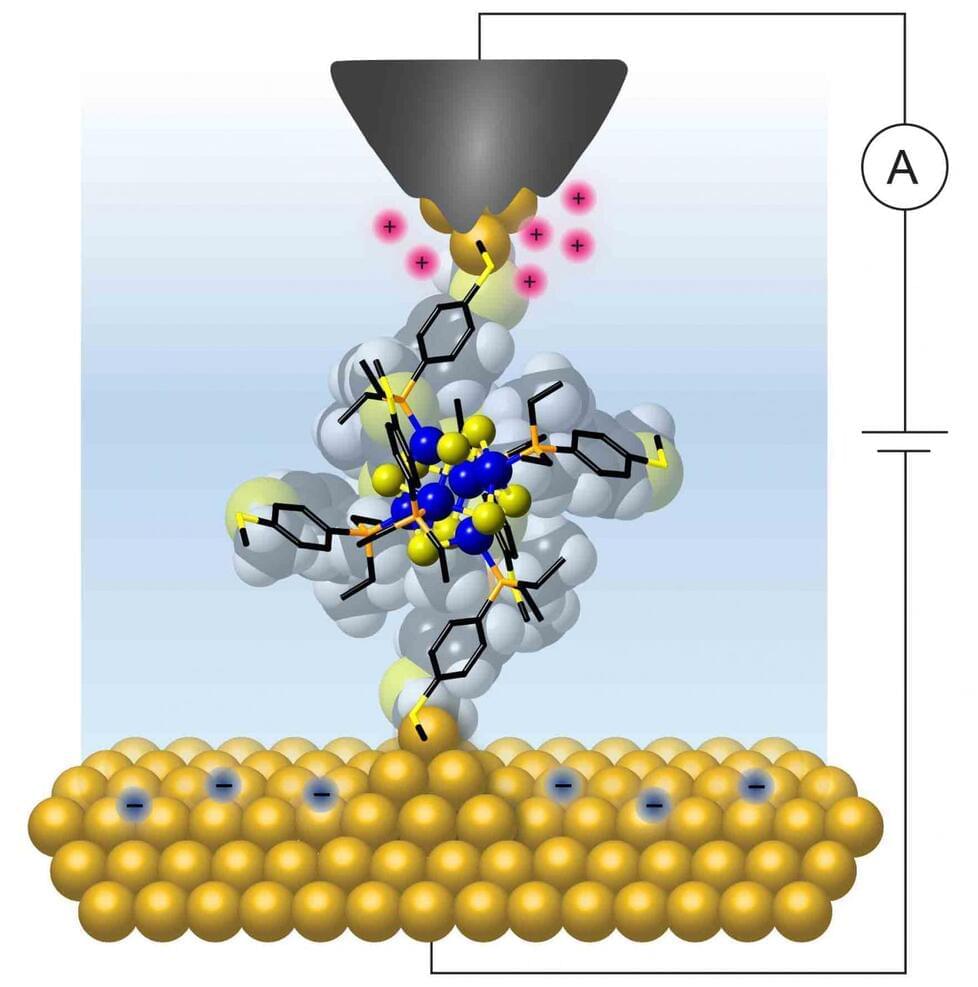A major goal in the field of molecular electronics, which aims to use single molecules as electronic components, is to make a device where a quantized, controllable flow of charge can be achieved at room temperature. A first step in this field is for researchers to demonstrate that single molecules can function as reproducible circuit elements such as transistors or diodes that can easily operate at room temperature.
A team led by Latha Venkataraman, professor of applied physics and chemistry at Columbia Engineering and Xavier Roy, assistant professor of chemistry (Arts & Sciences), published a study in Nature Nanotechnology that is the first to reproducibly demonstrate current blockade—the ability to switch a device from the insulating to the conducting state where charge is added and removed one electron at a time—using atomically precise molecular clusters at room temperature.
Bonnie Choi, a graduate student in the Roy group and co-lead author of the work, created a single cluster of geometrically ordered atoms with an inorganic core made of just 14 atoms—resulting in a diameter of about 0.5 nanometers—and positioned linkers that wired the core to two gold electrodes, much as a resistor is soldered to two metal electrodes to form a macroscopic electrical circuit (e.g. the filament in a light bulb).









Comments are closed.